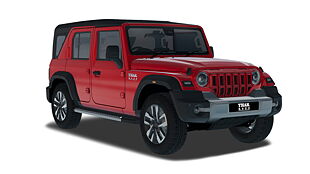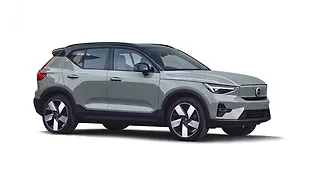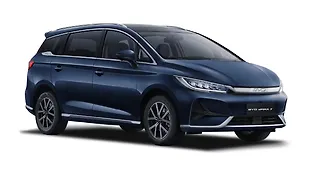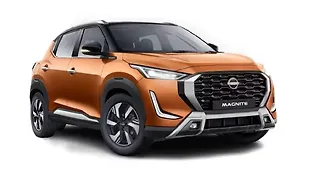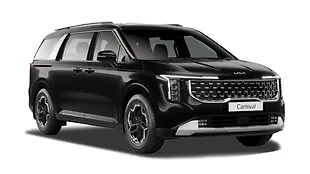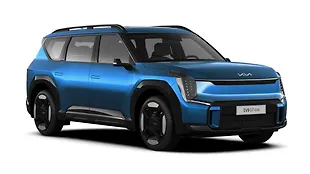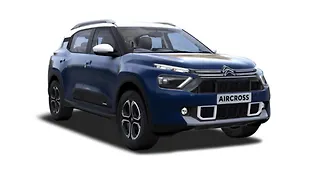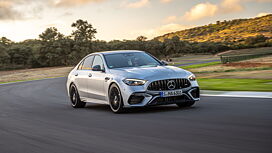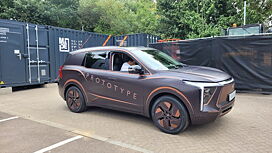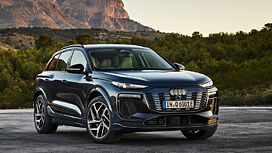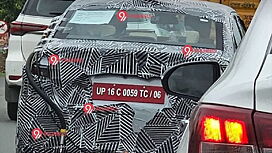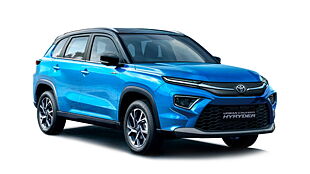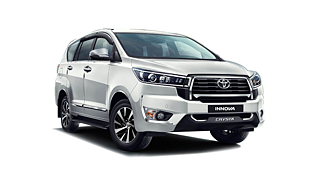Nissan Magnite vs Toyota Urban Cruiser
Introduction
The compact SUV race during the last decade was quite different from what it is now. You mainly had the Maruti Suzuki Brezza competing against the Ford EcoSport and the Tata Nexon. The other global brands, meanwhile, didn’t bring much to the table at the time, unless buyers were willing to shell out more money for their mid-size SUVs. Times and buying preferences both have now changed and you can see the change in every carmaker competing aggressively in the hugely popular compact SUV segment.
Now, the list of brands selling compact SUVs also includes Toyota and Nissan, besides other recent entrants such as Hyundai, Mahindra and Kia. The Nissan Magnite, in fact, is the most recent entrant to the compact SUV space whereas the Maruti Suzuki Brezza-based Toyota Urban Cruiser has been around since September of 2020. Both are highly practical and comfortable compact SUVs and if you Go for the automatic versions you will certainly not be disappointed with either. In this day and age of cost-effective AMTs, buyers are bound to appreciate the presence of a CVT and a torque converter in the Magnite and the Urban Cruiser respectively. Naturally, it goes without saying that both these SUVs have their positive and negative traits and in this buying guide we will tell you which one you should be putting your money on.
Performance

Before we get to the real-world performance, do note that both the Magnite and the Urban Cruiser make similar levels of power despite the considerable gap in engine displacement. The Nissan uses a 1-litre, three-cylinder turbocharged engine which makes 99bhp of power and 160Nm of torque whereas the Urban Cruiser gets a 1.5-litre naturally aspirated four-cylinder engine which makes 103bhp of power and 138Nm of torque. It’s the same 1.5-litre K-Series engine you get in the Vitara Brezza. Straight off the line, the Magnite shows off its turbo power by putting up quicker acceleration times. In fact, it took 4.72 seconds to do 0-60kmph and 11.14 seconds to hit the 100kmph mark. The Urban Cruiser, meanwhile, performed quite well for all its naturally aspirated grunt, reaching 60kmph in 4.97 seconds and 100kmph in 11.69 seconds. A lot of this is down to its torque converter automatic which puts down the power better than the Nissan’s CVT which favors smooth, linear acceleration more than outright punch.

Our 20 to 80kmph roll-on test is indicative of the acceleration within city driving conditions. Here the Magnite took 6.22 seconds to accelerate from 20 to 80kmph, while the Urban Cruiser took 7.01 seconds to do the same run. At higher speeds the difference in roll-on acceleration narrows down as the Magnite is capable of completing the 40-100kmph sprint in 8.38 seconds and the Urban Cruiser isn’t far behind at 8.94 seconds.
Fuel Efficiency

Unfortunately, we have not yet been able to put these compact SUVs through our rigorous fuel efficiency tests. If we go by the ARAI claimed figures, it’s the Magnite that does ever so slightly better than the Urban Cruiser. Nissan is claiming an overall fuel efficiency of 17.7 kmpl for the Magnite CVT whereas the Urban Cruiser is rated at 17.03kmpl. Considering that the 1-litre Magnite CVT is a lot lighter than the Urban Cruiser automatic, the difference in fuel efficiency could have been greater. Nonetheless, we will have to wait till we can get our hands on both the compact SUVs before declaring a clear mileage winner.

Interior

The Urban Cruiser’s cabin has a familiar air to it. You get a straight forward looking all-black dashboard and the overall cabin follows the function-over-form approach that we are used to from Toyotas. It’s fascinating considering that it’s essentially a Maruti Suzuki design. There are hard plastics used all around with only a single silver insert over the glove box and a piano-black surround on the centre console breaking the monotony. As for space, there’s ample head and knee space even for taller passengers. The same can be said about the rear seats with generous under-thigh support and an upright backrest angle. You could have three people here but it won’t be comfortable over long journeys.

The Magnite’s interior design couldn’t have been anymore different from the Urban Cruiser’s cabin. It’s no surprise that the much newer Magnite has a far better looking cabin with lots of modern touches and design elements. You get a funky-looking all-digital instrument cluster with trendy graphics. The dashboard also has been designed keeping current design trends in mind. What’s not so great in here though is the quality of some materials, especially plastics used on the center console and door cards. The Urban Cruiser also has similarly dull looking plastic materials all-around but they appear more durable than the Nissan’s. As for the level of space inside the Magnite, the shoulder room is sufficient and the front seats are also a tad bit more supportive than what you get in the Urban Cruiser. And despite being smaller on the outside, the level of space in the back of the Magnite is quite impressive. There’s surprisingly good amount of legroom and headroom with adequate under thigh support and cushioning on those seats.
In terms of boot space and flexibility for storage, both Magnite and the Urban Cruiser are at par. The Toyota has 328-litres of boot space on offer though what’s more impressive is a large loading bay with a nicely squared-off room for you to fit a large suitcase and a couple of medium-sized suitcases with room to spare for a duffle bag or backpacks. The Magnite’s boot is slightly larger at 336-litres and it’s good enough to accommodate one full-size and two other medium-sized suitcases. Both come with 60:40 split and fold function for the rear seat in case you are wondering.
Features

The most expensive version of the Urban Cruiser comes has all the basics covered when it comes to features. You get LED headlamps with auto function, rear parking camera, LED fog lamps, 16-inch diamond-cut alloys, push-button start, leather-wrapped steering wheel, automatic wipers, cruise control, climate control and electrically foldable mirrors. The seven-inch touchscreen infotainment system is also nice and simple to use with smartphone mirroring on offer. The Magnite, on the other hand, adds many segment-first features in its most expensive version with the option pack. You get a fully digital instrument cluster, a 360-degree camera, a six-speaker JBL audio system, ambient lighting, wireless charging, rear AC vents and a tire pressure monitoring system. So when it comes to comfort based equipment there is no competition really since the Magnite is so feature packed for the price. As for safety features, both vehicles come with dual airbags, ABS, hill hold function, automatic wipers and headlamps.

Price
As for the all-important prices, Toyota is selling the Urban Cruiser automatic in three variants with ex showroom prices ranging between Rs 9.93 lakh and Rs 11.41 lakh. Nissan meanwhile is selling as many as seven versions of the Magnite automatic. Better still, with prices ranging between Rs 8.39 lakh and Rs 9.90 lakh, the Magnite is significantly cheaper than the Urban Cruiser. And it’s not like you are losing out on space, features and ride comfort either because the Magnite, as we have seen, offers a lot more kit for the money than most of its rivals. And on top of that it’s powered by a fairly sophisticated turbo petrol-CVT drivetrain. Sure, its missing some high end features like sunroof and leather seats but for a sub ten lakh rupee compact SUV, you are getting a lot of bang for your buck.
Pictures by Kaustubh Gandhi and Kapil Angane



